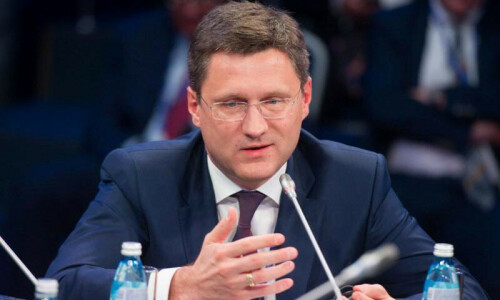By Shahbaz Zafar
I am surprised by the prolonged nature of the Russia-Ukraine war. Now, I have decided to share my thoughts on this issue to inform my readers. Although many are already aware of the conflict, I believe my humble effort will provide them with deeper insights into the situation.
What were the reasons behind Russia’s decision to invade Ukraine, and what were its objectives? Why has the war continued for over two and a half years, and what are the potential consequences? Additionally, why does it seem that the rest of the world is largely indifferent or limited in its efforts to stop this conflict, despite the significant loss of life and displacement on both sides?
The war between Russia and Ukraine is deeply rooted in historical, political, and cultural factors, with extensive consequences affecting not just the two countries but also the global community. The situation remains dynamic, and efforts to resolve the conflict are ongoing but face numerous challenges.
The full-scale war between Russia and Ukraine, which escalated dramatically in February 2022, has complex historical, political, and social roots. Here’s an overview of the situation:
Ukraine has a long history intertwined with Russia. After the Soviet Union collapsed in 1991, Ukraine became an independent nation, which some in Russia view as a loss of influence over former Soviet territories. Russia has expressed strong opposition to NATO’s eastward expansion; the possibility of Ukraine joining NATO was a crucial factor behind Russia’s actions. Russia perceives NATO’s presence near its borders as a direct threat to its national security.
Prior to the war, there were significant tensions within Ukraine regarding its alignment—whether to foster closer ties with the West (European Union and NATO) or to maintain closer relationships with Russia. The 2014 Euromaidan protests, which ousted a pro-Russian president, significantly worsened relations. The constant interference by European countries in Ukraine’s NATO aspirations further escalated tensions. In 2014, Russia annexed Crimea, a strategically located area that controls access to the Black Sea and the Mediterranean. Russia aims to maintain its naval base in Sevastopol, Crimea, and secure its influence in the region, while also supporting separatist movements in the Donetsk and Luhansk regions of eastern Ukraine.
Many Crimeans identify as Russian, and Russia claimed a responsibility to protect them. Russia was concerned about Ukraine’s potential membership in NATO, which would bring the alliance closer to its borders. Crimea is also an important tourist destination, and Russia sought to control the region’s resources and infrastructure.
This set the stage for further conflict, which escalated in 2022. Russian President Vladimir Putin has publicly expressed a desire to reclaim what he sees as lost Russian territory and influence. He has framed the war as a mission to protect Russian-speaking populations in Ukraine. The war has seen both Ukrainian and Russian forces entrenched in a prolonged conflict, with significant casualties on both sides. Neither side has been able to secure a decisive victory.
The war has broader implications for international relations. Western nations have provided support to Ukraine, complicating the prospect of a negotiated settlement. The conflict has massive economic implications, with both sides feeling pressure from sanctions and economic strains while also benefiting from wartime economies. The war has intensified Ukrainian national identity, motivating further resistance against Russian aggression. It has led to a significant humanitarian crisis, with millions of Ukrainians displaced internally and as refugees in other countries, along with thousands of military and civilian casualties.
Both Ukraine and Russia face dire economic challenges due to the war. Energy prices, food security, and supply chain issues have affected many nations, particularly in Europe. The war has shifted geopolitical alliances, with some countries strengthening ties with NATO and increasing military spending in response. Tensions between Russia and Western countries have heightened, leading to an increased military presence in Europe and discussions about defense strategies.
While there are significant international interests in the conflict, many Western nations have condemned the invasion and provided military and humanitarian support to Ukraine, while other countries have maintained neutrality or even sided with Russia.




